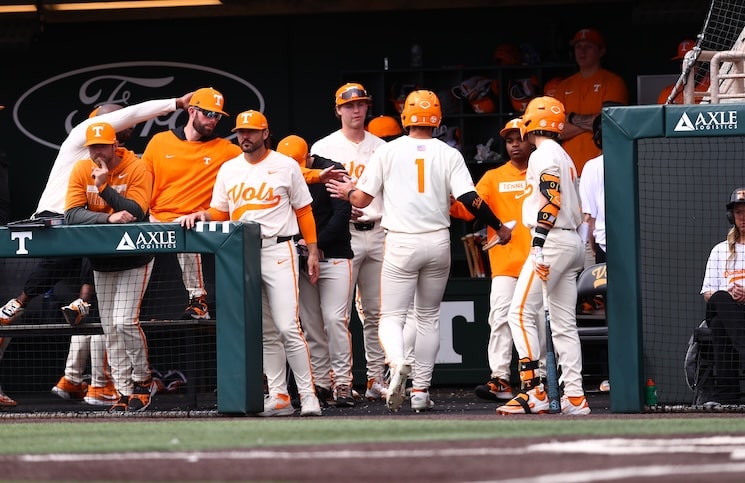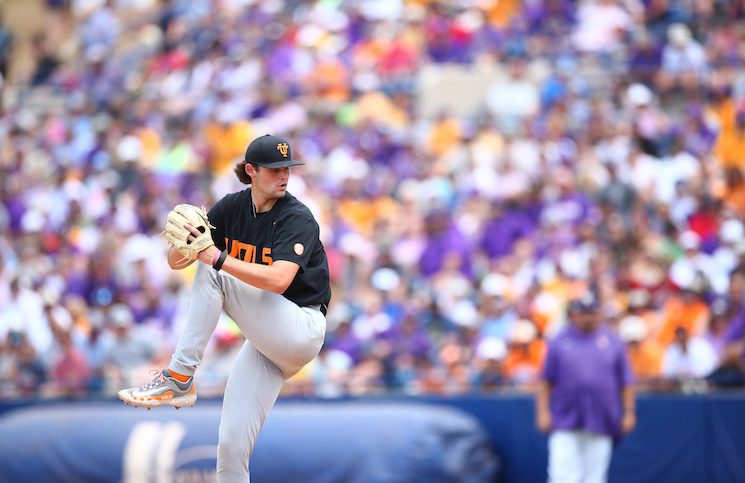
The NCAA handed down its punishment to Tennessee football and the guilty parties in the Vols’ recruiting scandal from the Jeremy Pruitt era.
Violations were rampant under Pruitt. Tennessee committed over 100 violations during Pruitt’s tenure including 18 Level I violations— the most serious violations by the NCAA’s standards.
The most serious violations came in two different forms. Tennessee gave over $60,000 in improper benefits to players and their families. This included Pruitt’s wife Casey paying the downpayment on a car for a recruit’s mom before providing $500 for monthly payments on the car once said recruit signed with Tennessee.
Jeremy Pruitt paid the mother of a player $3,000 for her to pay for medical bills.
Casey did not receive any punishment from the NCAA while the governing body handed Jeremy a six-year show-cause.
In its report Friday, the NCAA stated that Tennessee’s violations “require a one- or two-year postseason ban” per current NCAA rules and penalty guidelines. So how did Tennessee avoid a bowl ban? There are two keys.
First is Tennessee’s cooperation in the investigation. Chancellor Donde Plowman originally alerted the NCAA of the violations while starting an internal investigation.
“Under the strong leadership of its chancellor, Tennessee acted swiftly, thoroughly and decisively,” the panel said in its decision.
“Tennessee’s cooperation throughout the investigation and processing of this case was exemplary by any measure. Although this case involved egregious conduct, (Tennessee’s) response to that conduct is the model all institutions should strive to follow.”
This cooperation was imperative in Tennessee football avoiding a postseason ban. Without it, the Vols would likely face a two-year bowl ban (the $8 million fine equals what Tennessee would make in two postseasons).
“Taking into consideration the board’s guidance and the school’s cooperation, the panel therefore declined to prescribe a postseason ban in this case,” the NCAA wrote in its decision.
“If Tennessee had not cooperated with NCAA to the extent that it did, it would’ve received a postseason penalty,” NCAA infractions committee chief hearing officer Kay Norton said on a call Friday.
While Tennessee’s cooperation went a long way in avoiding a postseason ban it wasn’t the lone factor working in the Vols’ favor.
In January 2022, the NCAA members approved a new constitution. A point of emphasis in the constitution is to avoid punishing current parties at a university that weren’t involved in the violations.
Part of the new constitution says, “to the greatest extent possible that penalties imposed for infractions do not punish programs or student-athletes not involved nor implicated in infractions.”
With none of the guilty staffers or players still at Tennessee— as well as the university’s strong cooperation— the Vols were able to avoid a postseason ban.
Tennessee is entering its third season under head coach Josh Heupel. The Vols used a resurgent 2022 season to earn an Orange Bowl berth. Tennessee knocked off Clemson to mark the program’s first 11-win season since 2001.
Expectations are high for Heupel’s third squad entering the 2o23 season.




One Response
Tennessee Fans: “We’re so proud of our cooperation with the NCAA! So what if we’re a bunch of scoundrels and cheaters? We cooperate!! Rocky Top!”
Pathetic….